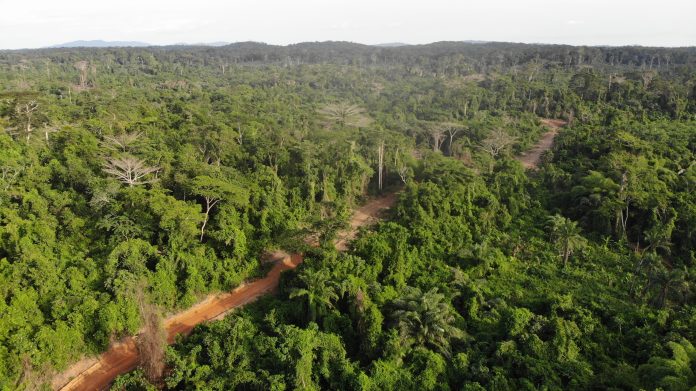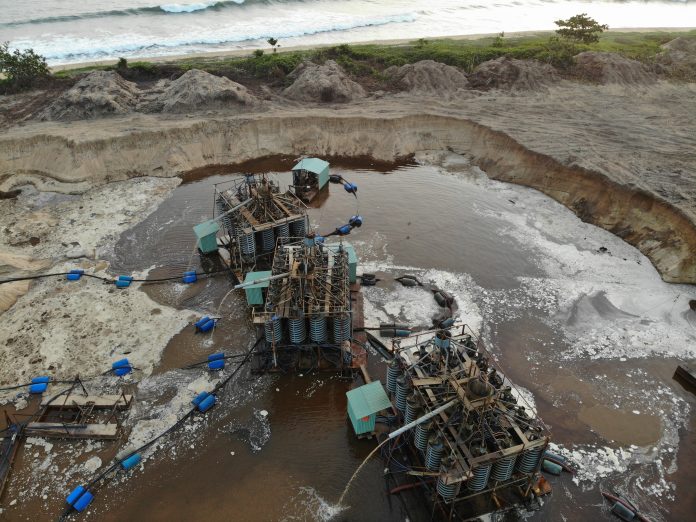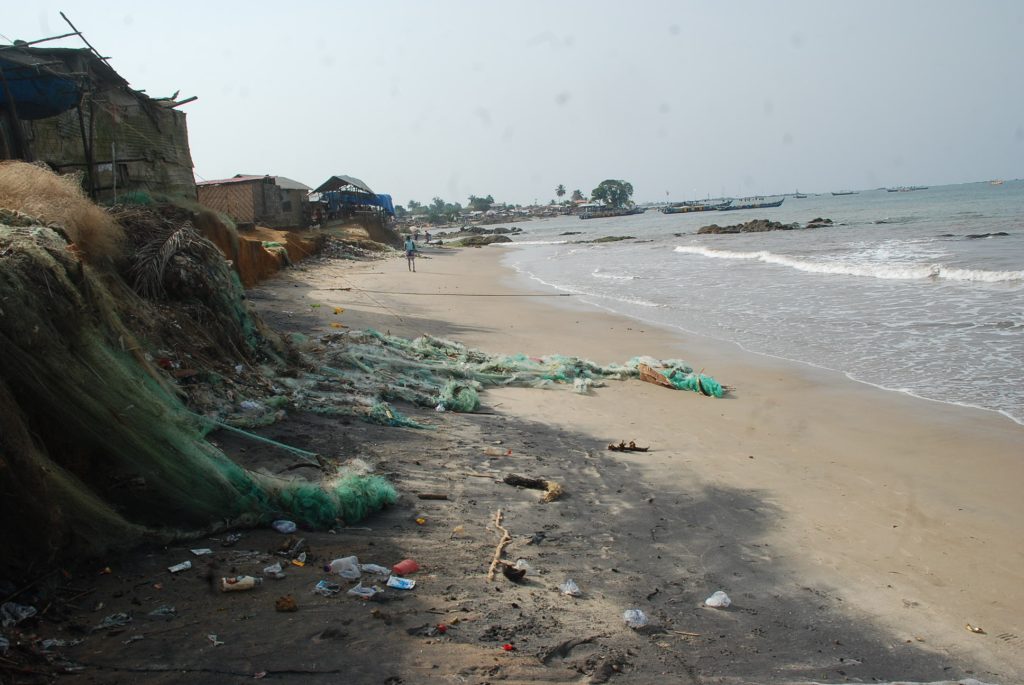Top: West Water has a 15-year contract with District Three B&C Community Forest in Grand Bassa County. The company is indebted to the owners of the forest but was allowed to export timber. The DayLight/Derick Snyder
By Emmanuel Sherman and Gerald Koinyeneh
Editor’s Note: This is the second part of a series on the Forestry Development Authority’s approval of illegal timber exports.
TONWEIN, Nimba and GAYEPUE TOWN, Grand Bassa – The Forestry Development Authority (FDA) permitted a company to export several consignments of timber while the firm was indebted to communities where the logs were harvested, a violation of a forestry regulation.
From June last year to March 2024, West Water Group (Liberia) Inc. shipped seven loads, totaling 3,275 logs or 18,683.309 cubic meters, FDA’s records show. The shipments are valued at an estimated US$3.5 million, based on the FDA-approved prices and details of logs in the consignments.
Yet West Water owes Blinlon Community Forests and District Three B&C in Grand Bassa and Nimba Counties over US$100,000, according to the leaderships of both community forests. The debt—approximately three percent of the estimated value of the exports—includes fees for land rental, harvesting, scholarships, and health services.
“The money from those logs that were shipped has not come to the community,” Jeremiah Gayepue, the head of District Three B&C leadership, told The DayLight. “The people are suffering.” West Water did not respond to queries for comment.
The FDA’s approval of the exports violates the Regulation of Forest Fees, requiring West Water to make all outstanding payments before shipment or harvesting.
The exports came to the spotlight after a DayLight investigation found half of the logs in the March consignment had been illegally harvested. The FDA denies the report, saying the newspaper “misinterpreted” the export dataset.
‘[Get] them out’
In July 2020, West Water signed a contract with locals to operate the 39,409-hectare Blinlon Community forest in the Yarwin-Mehnsonnon District near the Nimba-River Cess border.
The contract mandates West Water to pay the community yearly land rental, harvesting and scholarship fees.
However, as of last month, the company owed the community over US$32,000, based on an interview with Junior Jacobs, the head of Blinlon’s leadership. The DayLight could not update that information at press time due to the lack of mobile phone connectivity in that part of Nimba.
Things are worse in District Three B&C, where West Water harvested four of the seven consignments of logs it exported.

West Water signed a contract with the Grand Bassa villagers about a year after it sealed the Blinlon deal. The new contract covers 24,862.5 hectares along Grand Bassa’s borders with Nimba and River Cess.
West Water owes District Three B&C nearly US$80,000, according to The DayLight’s calculation, based on interviews with the community forest’s leaders. It has outstanding land rental, harvesting, scholarships and health services payments.
These outstanding payments and other issues have sparked two protests this year, the latest last month. Locals set up roadblocks and prevented West Water’s workers from going into the forest as the company has always been indebted to them.
“If the company is not meeting its obligation we will revoke their documents to get [them] out,” Alex Bonwin, a member of the community forest leadership, said.
Indebtedness
Created in 2007, the Regulation on Forest Fees is one of several reform provisions to ensure forest resources “directly benefit local communities and the government.”
Jonathan Yiah, the lead forestry campaigner at the Sustainable Development Institute (SDI), blames West Water’s persistent indebtedness to the communities on the failure of the FDA to enforce the regulation.
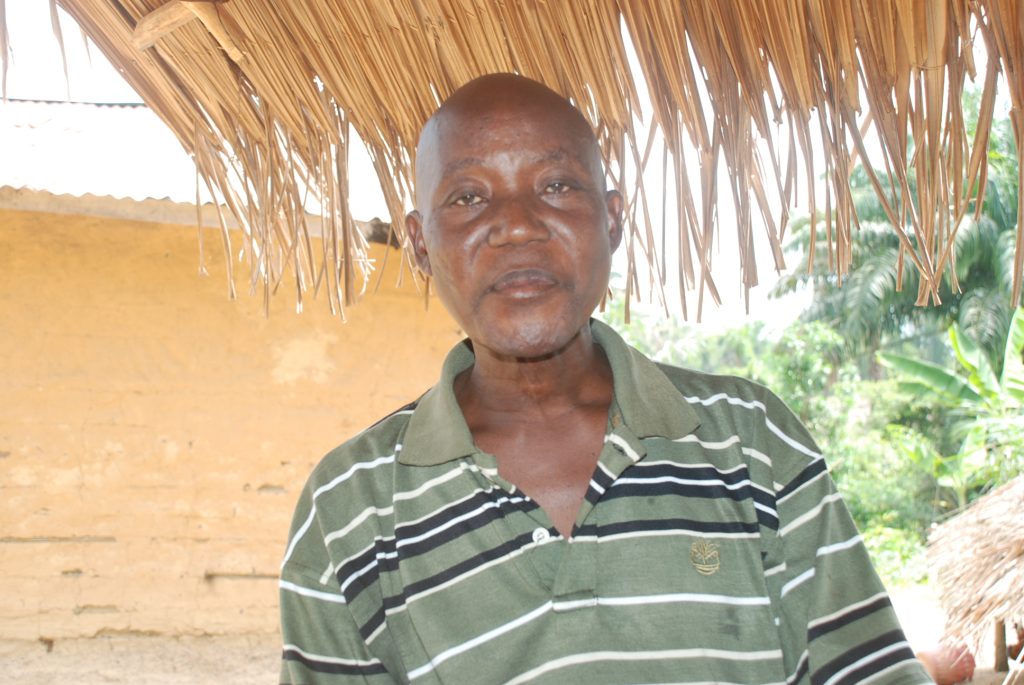
Yiah said the lack of enforcement of the regulation would lead to the termination or suspension of West Water’s contract.
“If the current government of Joseph N. Boakai means business, then forestry laws must be enforced in totality so that both the government and the communities can benefit from our resources,” Yiah told The DayLight.
Yiah is not the only person to have said this.
A World Bank report released last month calls on the Liberian government to prioritize forest communities by managing forestry resources sustainably for peace and prosperity. The report found that climate change will push 1.3 million people into poverty and reduce the size of Liberia’s economy by 15 percent by 2050 if nothing is done.
‘Very repressive’
The FDA dodged queries for comment on its failure to enforce the Regulation on Forest Fees. The agency disclosed that the company also owed the government US$59,319.50, which also breaches the regulation.
“Yes, we confirm that West Water has tax liabilities,” Merab said in a letter to the newspaper. “However, [the Liberia Revenue Authority] is the lead determinant of tax obligation.”
Merab is a staunch opponent of forestry laws and regulations.
In an interview with the African Report in 2015 after Liberia signed a US$150 million deforestation deal with Norway, he claimed that logging’s legal regime had impoverished rural communities.
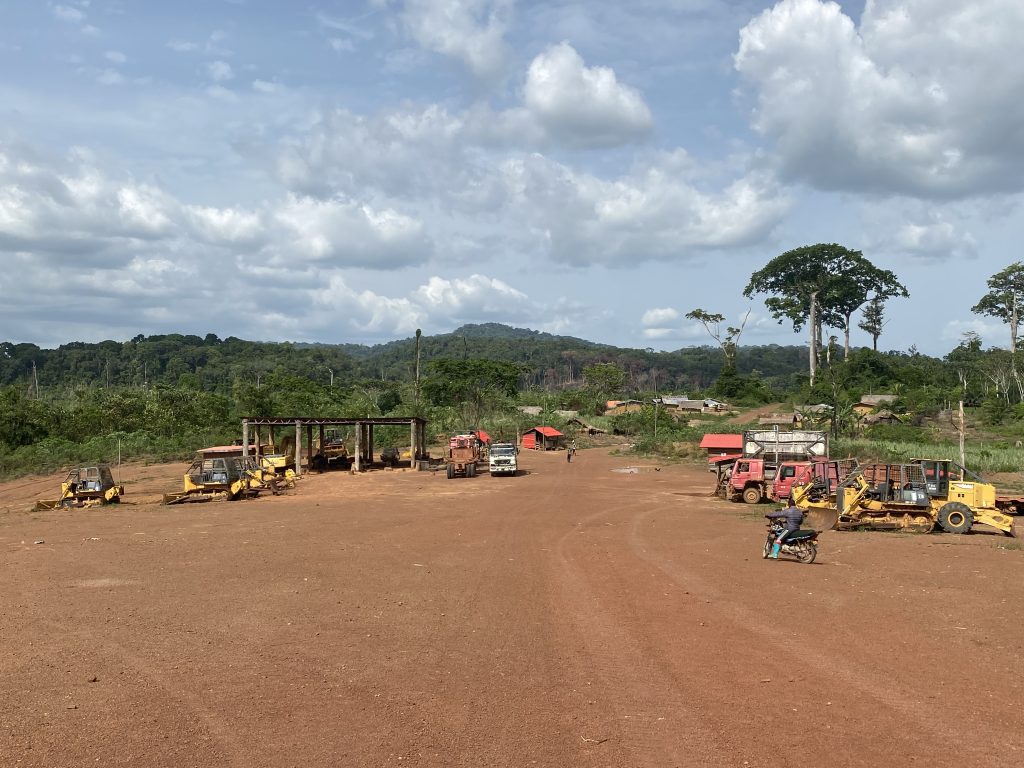
During his induction as Managing Director of the FDA, Merab aimed a dig at the crafters of the legal framework for creating laws “that cannot work.”
He stated that in a recent interview with the Associated Press, adding he would work to scale back regulations.
“Sometimes regulations become too cumbersome and it stifles productivity,” he said in the interview. “Same thing with laws. Sometimes the law becomes very repressive.”

